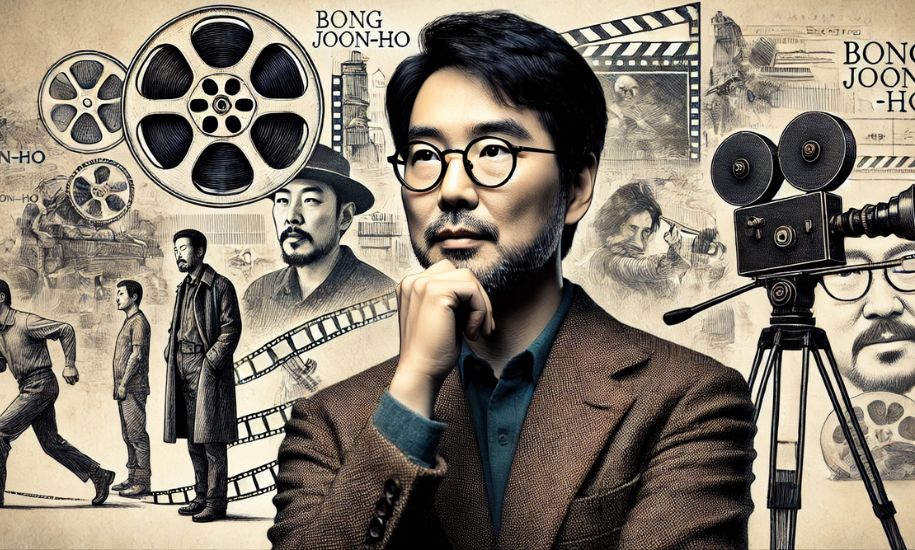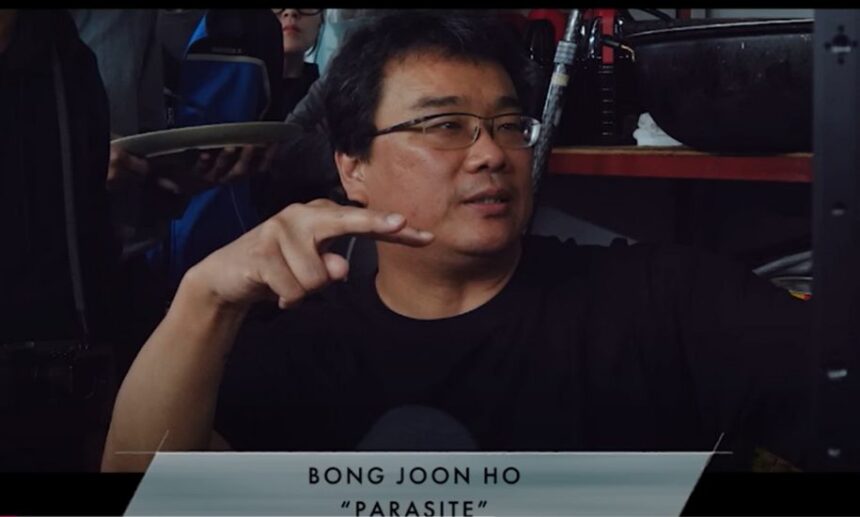Welcome to Baddie Hun, where today we delve into the life, art, and profound impact of one of cinema’s most influential storytellers, Bong Joon-ho. Known for blending genres and exploring social issues with a unique perspective, Bong Joon-ho has captivated audiences worldwide. From South Korea to Hollywood, his films push boundaries, challenge norms, and offer insightful commentary on society. Let’s explore the journey, works, and vision of Bong Joon-ho, a filmmaker who continues to redefine modern cinema.
Who is Bong Joon-ho?
Bong Joon-ho is a South Korean director, screenwriter, and producer who has achieved international acclaim for his thought-provoking films. Born in Daegu, South Korea, in 1969, he developed a love for storytelling and the visual arts from a young age. Bong studied at the prestigious Korean Academy of Film Arts, where he began to cultivate his unique style, which combines sharp social critiques with dark humor and genre-blending techniques.
Bong’s rise to fame wasn’t overnight; his career reflects years of dedication, creativity, and a relentless pursuit of challenging conventions. His films tackle themes of inequality, environmental issues, and human nature, often leading audiences to reflect on larger societal questions. This artistic vision has not only earned him awards but has also positioned him as a prominent figure who represents South Korean cinema on the global stage.
The Breakthrough Film: Memories of Murder
Bong Joon-ho first gained significant attention with his 2003 film Memories of Murder, a crime thriller based on a true story of a serial killer in South Korea. The film marked a turning point in his career and demonstrated his ability to combine suspense with a critique of social systems.
In Memories of Murder, Bong Joon-ho explored the complexities of justice and the limitations of law enforcement in rural Korea. The film’s layered storytelling, along with its unflinching portrayal of societal flaws, set a new standard for crime dramas. It resonated deeply with both Korean and international audiences, establishing Bong Joon-ho as a director with a distinct voice and perspective.
Breaking Boundaries: The Host and Snowpiercer
After Memories of Murder, Bong Joon-ho continued to push cinematic boundaries with films like The Host (2006) and Snowpiercer (2013). The Host, a monster film, was more than a horror movie; it was a social commentary on environmental pollution and government negligence. It broke box office records in South Korea and became one of the most successful films in Korean cinema.
Snowpiercer, his first English-language film, was a dystopian sci-fi thriller set on a train carrying the last survivors of humanity. With a star-studded international cast, including Chris Evans and Tilda Swinton, the film explored themes of class struggle and resource scarcity. Bong Joon-ho’s ability to blend action and philosophy made Snowpiercer a global hit and showcased his skill in tackling universal issues through genre storytelling.

The Worldwide Phenomenon: Parasite
In 2019, Bong Joon-ho achieved global recognition with Parasite, a film that would make history in more ways than one. Parasite tells the story of a poor family who infiltrates a wealthy household, leading to unexpected and devastating consequences. The film’s exploration of class disparity struck a chord worldwide, resonating in various cultural contexts.
Parasite went on to win the Palme d’Or at the Cannes Film Festival and made history at the 92nd Academy Awards, becoming the first non-English language film to win Best Picture. Bong Joon-ho also received the Best Director Oscar, cementing his place in cinema history. Through Parasite, Bong Joon-ho brought South Korean cinema into the international spotlight and demonstrated that a film could cross language barriers to deliver powerful messages.
Bong Joon-ho’s Style and Influence
Bong Joon-ho’s directorial style is distinctive, characterized by his ability to merge different genres seamlessly. His films often contain elements of suspense, comedy, and tragedy, creating a unique viewing experience that engages audiences on multiple levels. This genre-blending approach allows him to explore complex themes in ways that feel both accessible and profound.
One of the hallmarks of Bong Joon-ho’s style is his use of meticulous visual storytelling. He crafts each frame with purpose, using symbolism and cinematography to deepen the narrative. Bong’s work has influenced a generation of filmmakers, proving that genre films can address serious social issues without compromising entertainment value.
Social Commentary and Human Nature
A recurring theme in Bong Joon-ho’s films is the exploration of human nature and societal issues. He often portrays characters who are morally ambiguous, blurring the lines between hero and villain. This nuanced approach allows him to critique societal structures without resorting to simplistic narratives.
In Parasite, for instance, Bong Joon-ho examines the deepening divide between the rich and the poor. The film’s portrayal of both the wealthy and impoverished families highlights the human cost of socioeconomic inequality. Through his storytelling, Bong urges audiences to reflect on their roles in society and consider the impact of their choices.
Bong Joon-ho’s Impact on Global Cinema
Bong Joon-ho has become an icon not only in South Korea but also in global cinema. His success has paved the way for other South Korean directors, actors, and films to gain international recognition. The critical and commercial success of Parasite has opened doors for Asian cinema, proving that storytelling from diverse cultural perspectives has universal appeal.
At Baddie Hun, we celebrate Bong Joon-ho not only for his films but also for his courage in addressing societal issues through art. His work resonates with audiences from all walks of life, transcending language and cultural barriers. As a filmmaker, Bong Joon-ho reminds us of the power of cinema to influence, inspire, and provoke thought.
What’s Next for Bong Joon-ho?
Following the global success of Parasite, Bong Joon-ho has hinted at several upcoming projects, including a Korean-language film and an English-language animated feature. Fans and critics alike are eagerly awaiting his next creation, curious to see how he will continue to push boundaries in his storytelling.
With each film, Bong Joon-ho has shown that he is not afraid to tackle difficult subjects or experiment with new genres. His dedication to his craft and his vision for cinema as a tool for social change ensure that his future projects will likely captivate audiences and provoke thought just as his previous works have done.
Conclusion
Bong Joon-ho’s journey from a young filmmaker in South Korea to an internationally acclaimed director is a testament to his talent, vision, and dedication. His films have transcended cultural and language barriers, inviting audiences around the world to confront social issues and reflect on their own lives. At Baddie Hun, we celebrate Bong Joon-ho’s impact on cinema and look forward to his future works that will undoubtedly continue to shape the film industry.
Bong Joon-ho is more than a director; he is a storyteller who uses cinema to explore the human condition, challenge societal norms, and inspire change. Through his films, Bong Joon-ho reminds us that the world of cinema is limitless and that stories, no matter where they come from, have the power to unite us all.





